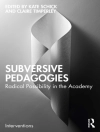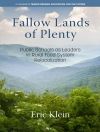This handbook provides guidance for all practising social work professionals, and the staff who support them, on the post-qualifying (PQ) framework for social workers. The book introduces the framework and outlines how post-qualification accreditation and professional registration affect social workers.
Covering the theory and practice of social work, the Handbook provides a set of tools and resources that enable social workers to develop their practice while coping with the demands of operational duties. The book looks at working with a range of service user groups such as children, people with learning disabilities and young offenders, as well as examining common issues that social workers may encounter, such as inter-agency work, and issues such as loss and participation. Tackling the increased post-qualification training necessitated by the new framework, this handbook contains resources and materials to help practitioners continue their own professional development.
This definitive guide is an invaluable resource for all practising qualified social workers, students and trainers, and educators.
Consultant editor: Robert Adams is Professor of Social Work in the School of Health and Social Care at the University of Teesside, UK.
Daftar Isi
General Introduction, Wade Tovey. Part One: Contexts. Introduction. 1. Engaging with Continuing Professional Development: With or Without Qualification? Michael Preston-Shoot, University of Bedfordshire. 2. Reflective, Critical and Transformational Practice, Robert Adams, University of Teesside. 3. Ethics and Values in Theory and in Practice, Mary Rayner, University of Teesside. 4. The Social Context of Post-Qualifying Practice, Nigel Leech, University of Teesside. 5. Integrating Theory and Practice at Post-Qualifying Level, Ian Duncan, University of Teesside. 6. Post-Qualifying Studies – European and International Contexts, Malcolm Payne, St Christopher’s Hospice.7. Researching Practice, Terry Murphy, University of Teesside, and David Nulty, NW PQ Consultancy. Part Two: Practice. Introduction. 8. Developing Inclusive Practice in Children and Families Social Work, James Reid, University of Teesside. 9. Community Care and Care Management, Martin Leveridge, University of Teesside. 10. Mental Health Social Work, Linda de Chenu, University of Hertfordshire.11. Learning Disabilities Today: Integrated Working, Michael Wren, University of Teesside. 12. Working with Young Offenders, Denis Hart, University of Teesside. Part Three: Issues. Introduction. 13. Assessment, Brian Littlechild, University of Hertfordshire, and James Reid. 14. `I Just Don’t Want to Go There’ – Sexuality in Social Work Education and Practice, Joy Trotter, Mary Crawley, Lesley Duggan, Emma Foster, and Jo Levie, University of Teesside.15. Thinking about Loss to Make Sense of Our Self, Maggie Jackson, University of Teesside. 16. The Challenges of Practice Learning Today, Jackie Gilchrist, University of Teesside.17. Users’ and Carers’ Involvement in Education and Service Delivery, Wade Tovey, University of Teesside. Part Four: Doing PQ. Introduction. 18. The PQ Framework in England from 2007, Vicki Lawson-Brown, Sunderland University and the Open University. 19. Adopting a Strategic Approach to Post-Qualifying Learning, Paula Sobiechowska, Anglia Ruskin University. 20. The Use of Portfolios in Social Work Education, Maire Maisch, Anglia Ruskin University. Afterword. Appendix 1: Supporting Roles in PQ, Geoff Owens, NEPQ Consortium. Appendix 2: Useful Websites. Appendix 3: Why Employers Should Engage with the Revised PQ Framework, Amanda Hatton, Skills for Care. Appendix 4: Post-Qualifying Education and Training for Social Workers. References. Contributors. Subject index. Author index.
Tentang Penulis
Maggie Jackson is a senior lecturer at the University of Teesside. She has previously worked as a teacher and as a practitioner-therapist for a psychological service.












